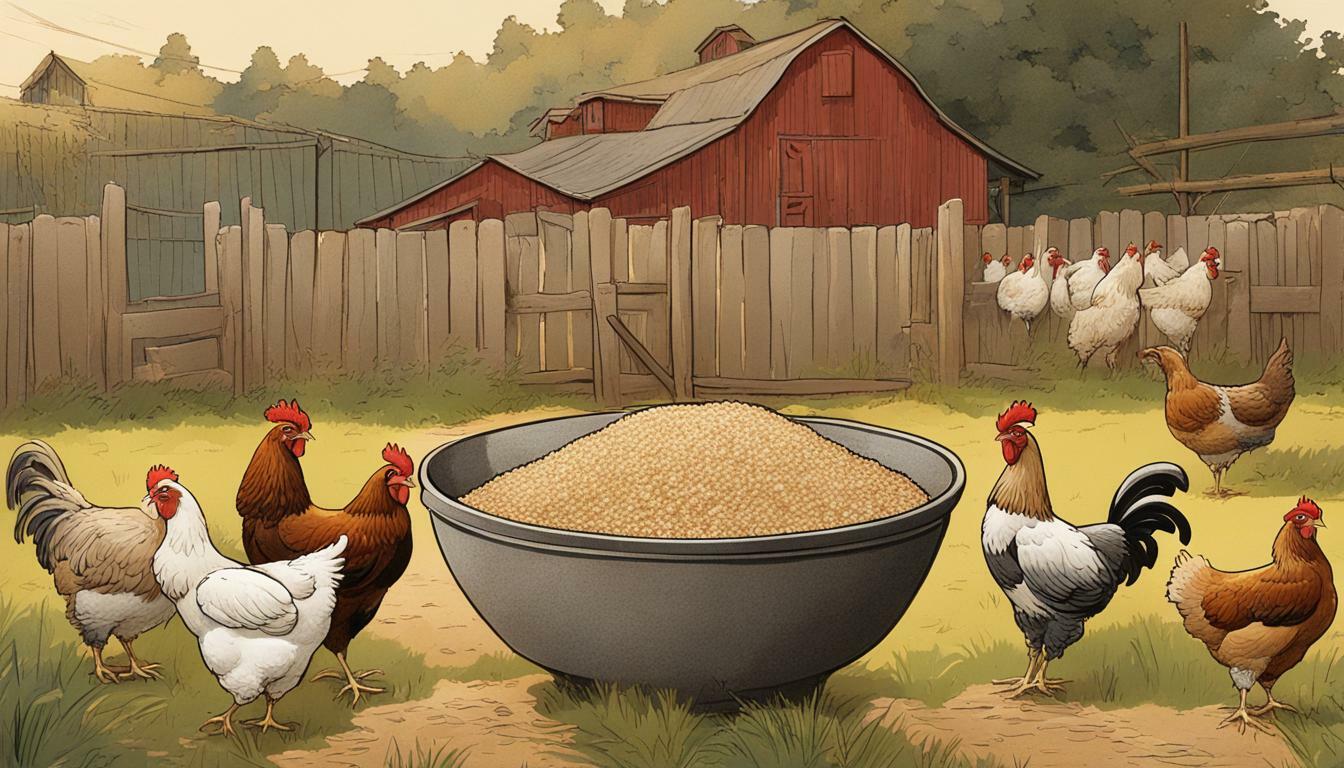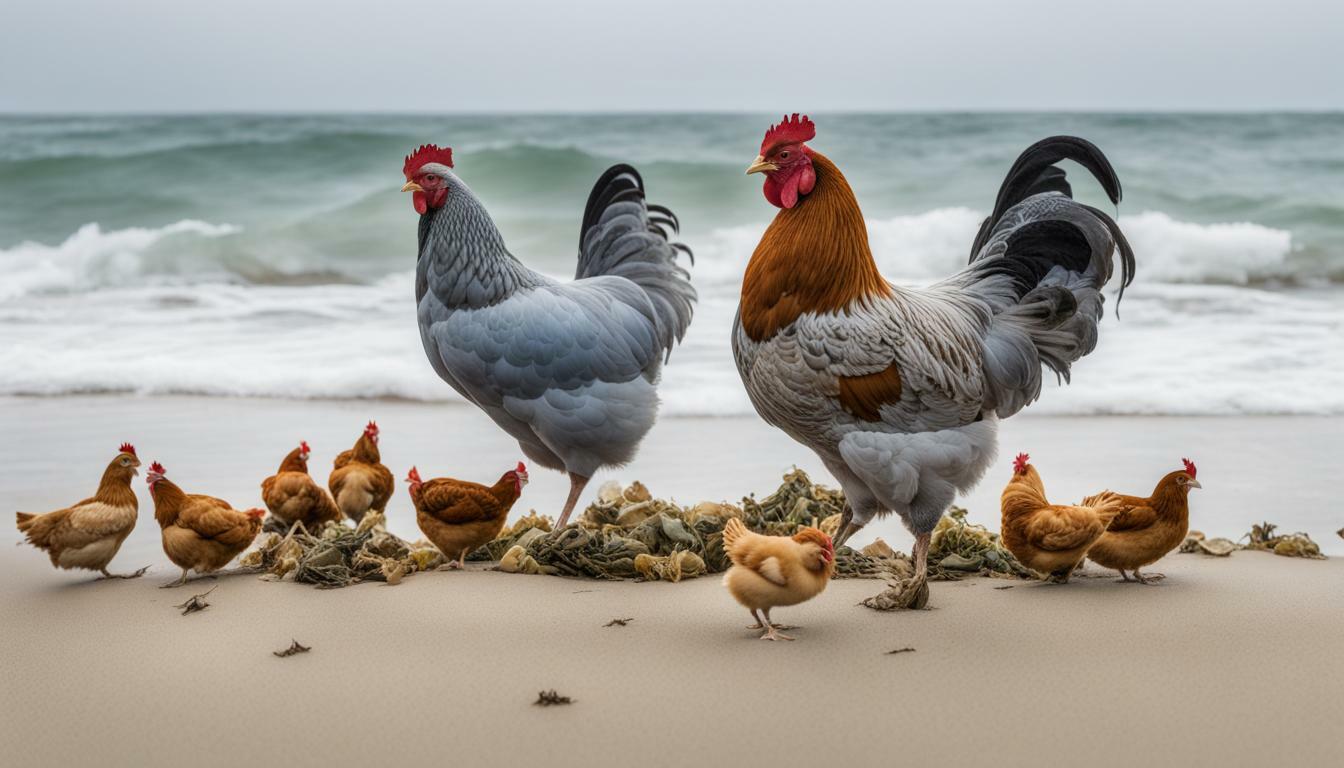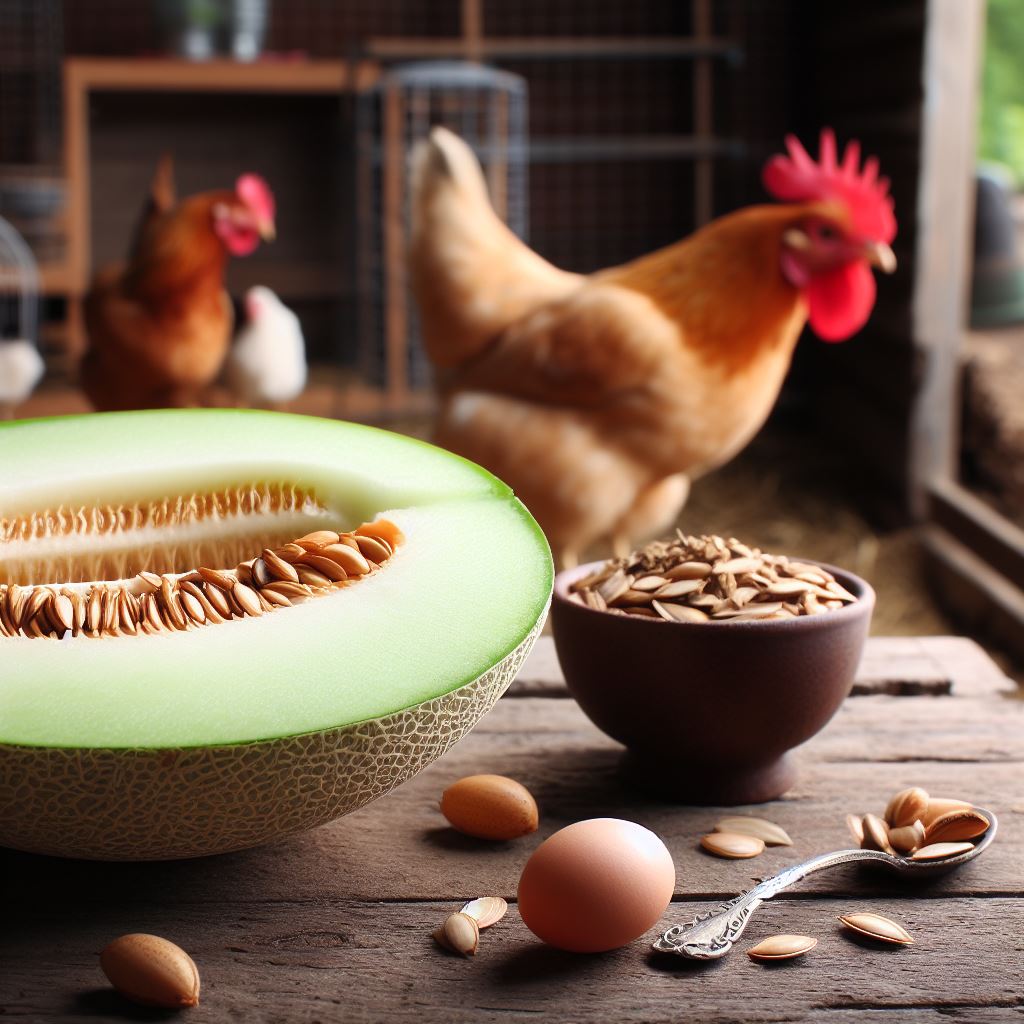Can Chickens Eat Uncooked Steel Cut Oats? Find Out Here!

Table of content:
- Should I cook the oats before feeding chickens?
- Are steel cut oats safe for chickens?
- What are the benefits of feeding chickens oats?
- How much oats should I feed my chickens?
- Do chickens like eating oats?
- Is it okay to feed chickens oatmeal?
- Can oats make chickens sick?
- Do oats have any nutritional value for chickens?
- Conclusion
Yes, chickens can eat uncooked or raw oats in moderation. Oats are a healthy treat and supplement for chickens and provide extra protein, vitamins, and minerals. However, raw oats are harder for chickens to digest than cooked oats.
Should I cook the oats before feeding chickens?
It’s generally recommended to cook oats before feeding them to chickens to aid digestion. The heat from cooking helps release nutrients and softens the grain, making it easier for chickens to digest in their crop and gizzard.
Raw or uncooked oats may pass through a chicken’s digestive system mostly undigested. Chickens don’t have teeth to help grind up grains. They rely on their gizzard to break down food by contracting muscles and using grit. Uncooked oats may not get properly broken down.
Cooking oats before feeding makes the nutrients more bioavailable and digestible for chickens. Methods like soaking, sprouting, or boiling oats can help improve digestibility.
Are steel cut oats safe for chickens?
Steel cut oats are considered safe for chicken feed in moderation. Steel cut oats are whole oat groats cut into smaller pieces. Compared to rolled or instant oats, steel cut oats take longer to cook and retain more texture.
The harder texture of steel cut oats means chickens will need more time and effort to break them down in their digestive system. So it’s best to go easy on steel cut oats, and always cook them first before feeding.
Limit steel cut oats to a treat or supplement, not a mainstay of the diet. Cook them thoroughly until soft, yet still chewy. Let them cool to an appropriate temperature before feeding chickens.
What are the benefits of feeding chickens oats?
Feeding chickens oats, whether raw or cooked, provides some useful health benefits:
- Protein – Oats contain decent levels of protein, around 13-16%. This aids growth and egg production.
- Fiber – The fiber in oats supports digestion and gut health.
- Essential fatty acids – Oats contain linoleic acid, an omega-6 fatty acid chickens need.
- Important vitamins and minerals – Oats provide B vitamins, iron, zinc, manganese and more.
- Anti-oxidants – Oats contain antioxidants that can boost immunity.
As a supplement to a commercial feed ration, oats add valuable nutrients. Oats offer more nutrition than scratch grains or corn. The fiber and protein are particularly beneficial.
How much oats should I feed my chickens?
A good rule of thumb is to limit oats to 1-2 tablespoons per chicken per day for treats. For a supplement to add to feed, oats can make up 5-10% of the total ration.
Adjust amounts depending on the type of oats and your flock’s needs:
- Chicks under 12 weeks may do best with rolled or instant oats for easier digestion.
- Breeding hens can get up to 15% oats in the diet for protein and nutrients.
- Broiler chickens may get too fat with excess oats. Stick to 1% or less of feed.
- Only feed oats once cooked to aid digestion for young and old birds.
- Monitor egg production and quality if significantly increasing oats. Too much could decrease feed intake.
Moderating oat amounts will let chickens benefit without adverse effects. Never make oats the main part of their diet.
Do chickens like eating oats?
In general, chickens find oats to be a palatable and enjoyable feed ingredient. The taste, texture, and smell of oats are attractive to chickens.
Oats offer more flavor than corn or soy. Chickens will eagerly eat up both raw and cooked oatmeal. The natural sweetness often makes oats an appealing treat or snack for chickens.
Tossing some oats into their feeder, coop floor, or run allows chickens to forage and nibble. This mimics their natural behavior of scratching and pecking for grains. Just don’t let oats exceed 10% of intake since chickens may overindulge.
Is it okay to feed chickens oatmeal?
It’s perfectly fine to feed chickens cooked oatmeal as an occasional treat. Plain oatmeal without any added sugars, salts, or flavors is healthiest.
Rolled or instant oats are easiest for chickens to eat and digest. Avoid steel cut or “old fashioned” oats which take longer to break down. Let the oatmeal cool off to an appropriate temperature before serving.
To improve nutrition, mix in bits of fruit, vegetables, seeds, nuts, or sprouts to the oatmeal. This provides extra vitamins, minerals, protein, and fiber.
Only offer chickens a few spoonfuls of oatmeal at a time. Leftover oatmeal should be discarded since chickens’ beaks can spread bacteria. Keep oatmeal as a periodic treat, not a daily meal.
Can oats make chickens sick?
Oats are not toxic to chickens but could cause issues if fed improperly. Potential problems include:
- Bloat or impacted crop – Eating too many dry, raw oats may absorb moisture and expand in the crop, preventing passage to the gizzard.
- Diarrhea – Excess oats could lead to loose stools, dehydration, and stressed digestion. Reduce oat amounts.
- Allergic reaction – Rarely, chickens may be allergic to oats and get symptoms like swelling or skin irritation. Eliminate oats.
- Weight gain – Oats are relatively high calorie so overfeeding could lead to obesity. Obese chickens are prone to health issues.
- Nutritional deficiencies – Oats should not replace a balanced feed ration. Chickens still need their overall nutrition.
With proper feeding techniques, oats are generally safe for chickens. Introduce new feeds slowly, in small amounts, and watch for any issues. Discontinue use if any sensitivity is observed.
Do oats have any nutritional value for chickens?
Yes, oats can be a nutritious supplement for chickens due to their content of:
- Protein for growth, muscle, feathers, and egg production
- Fiber for healthy digestion and nutrient absorption
- Healthy fats like linoleic acid for skin and feathers
- Vitamins and minerals like vitamin E, B vitamins, iron, manganese, zinc, and selenium
- Antioxidants to reduce cell damage from free radicals
- Beta-glucan to support immunity
The whole grains provide more concentrated nutrition than processed feed. The high fiber is beneficial for digestion.
Chickens can efficiently convert the nutrients in oats into energy, protein, and lipids for bodily maintenance, production, and reproduction. In moderation, oats make a valuable addition to a chicken’s diet.
Conclusion
Oats can be a safe, healthy, and nutritious supplement for backyard chickens when fed properly. Most chickens enjoy pecking at oats. Be sure to limit intake to 10% of the diet or less. Cook any oats thoroughly before feeding to aid digestion. Slowly transition chickens to minimize risk of digestive upset. Monitor egg production and flock health when significantly increasing oat amounts. With a measured approach, oats can provide useful protein, fiber, vitamins, minerals, and antioxidants to benefit chickens.
Welcome. I’m Adreena Shanum, the proud owner of this website, and I am incredibly passionate about animals, especially poultry. I founded adreenapets.com as a labor of love, stemming from my desire to share my knowledge and experiences with poultry enthusiasts worldwide.




